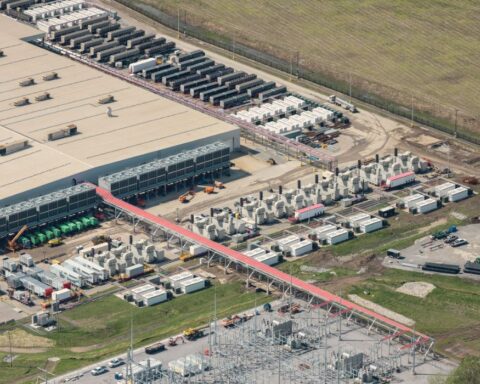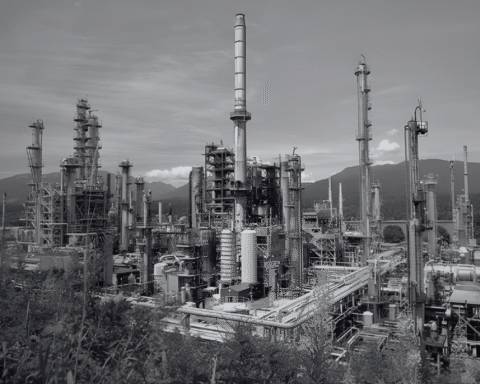The precise moment announcing Canada’s “reset” on its road to resources was this headline splashed across the front page of the Globe and Mail on May 17, 2018: “Pipeline pledge won’t cost taxpayers a cent, Morneau says”.
It refers to the stalled Trans Mountain pipeline expansion, which Ottawa had already approved but which now was in big trouble as a result of the proponent’s inability to access its terminal on account of protests.
There it was in black and white. Formal, high-level political recognition (by Finance Minister Bill Morneau) that resource projects in modern day Canada needed to be de-risked through direct federal government intervention. And as we were about to learn, this pipeline needed more than de-risking: It needed outright rescuing. Ottawa paid billions to assume Kinder Morgan’s ownership position, as the latter headed for the exits.
Such is the fraught social-licence atmosphere playing out throughout the country, where eco-activism has teamed up with native empowerment to take on projects they don’t like.
Yet, it is the rise of native empowerment that is the primary driver in derailing resource projects. That’s because Indigenous peoples have racked up the greatest winning streak in our legal history – ringing in at 275 rulings and impacting resource projects coast to coast.
Viewed in its totality, it’s our national dream that is at risk, more so than any particular project.
No longer can we assume that we are able to rebuild or revitalize the nation’s infrastructure. Nor can we guarantee an investment climate that will induce others to invest in our future.
The notion that Canada has unlimited resource potential simply no longer bears credence. So instead of resource bounty greatness, we’ve fallen into the rut of project mismanagement. We’re forced to wonder what went wrong, while looking at events through the lens of gridlock.
Really, it’s poetic justice that Ottawa ended up owning this embattled pipeline, having paid through the nose for a project that immediately thereafter went down in flames as a result of a court ruling that focused on Ottawa’s regulatory shortcomings: namely, the lack of assessment of whale habitat and impacts (an environmental win) and the Crown’s failure to adequately conduct its duty to consult (an Indigenous peoples win). Ottawa now gets to take the heat and squirm in frustration like all those other project proponents – wondering what ever became of regulatory certainty, and whether Canada was even open for business in the resources sector.
Indigenous peoples have racked up the greatest winning streak in our legal history – ringing in at 275 rulings and impacting resource projects coast to coast.
No sooner was the Trans Mountain pipeline project slated to be sold off in order to recoup Ottawa’s de-risking costs than the next batter-up, Coastal GasLink pipeline, announced that it too wanted to sell off a majority ownership position in that project. This meant that two new proposed pipelines crossing British Columbia were now for sale. Bottom line: Ottawa has competition in the pipeline divestiture sweepstakes, portending weak returns on a future sale.
Here we see the downward spiral happening in real time. Proponents of major infrastructure projects want out. Ottawa steps up. Taxpayers end up holding the bag. All on account of no overarching strategic plan on our road to resources. This is why a national reset is imperative.
While the focus on energy industry woes is important, it does not nearly tell the whole story. Indigenous peoples are deciding the fate of other industries that don’t have the financial heft to fight back. West coast natives have brought the curtain down on the farmed salmon (open pens) industry, which is starting to phase itself out under NDP provincial government direction.
And on the east coast, a major pulp mill is waging a losing battle over rampant pollution, where Nova Scotia’s Liberal government is siding with impacted natives wanting to shutter the mill – meaning it’s not just legal wins that are deciding a project’s future. Indigenous peoples likewise excel in political negotiations and (if need be) on-the-ground pushback. The fact they have amassed such a powerful legal winning streak enables them to come at proponents with a real head of steam.
All the major industries have lost key rulings to natives at the appellate level.
Mining, forestry, fishing, hydropower, transmission lines, pipelines, oil sands, fracking, transportation, regulatory reviews, orders in council, even legislation – not to mention prominent politicians – all have been rendered roadkill on the road to resources as a result of the rise of native empowerment. One of the common denominators from this tale of woe and grief is quite telling for our resources future: Once a project flames out, it’s not likely to be remounted. Ontario’s Ring of Fire is a case in point. Most proponents, once burned, tend to move on. We’ve lost many foreign investments during the rise of native empowerment and our resources sector has suffered mightily as a direct result.
The other major manifestation arising from the native empowerment movement and their legal wins is the hardening of their environmental prerogatives. They’ve won so many rulings in that sphere that their agenda and the environmental agenda have now merged as the primary issue. As a result, any proponent today who is not prepared to share power in a meaningful way in sorting through a project’s environmental impacts will likely draw serious native opposition in tandem with eco-activist opposition. This explains why we so often hear the Mother Earth drumbeat – because now it’s stronger than ever, and doubly so when eco-activists join in.
Thus, a reset is required in our national thinking in order to take into account these dynamics: massive native legal empowerment and their ramped-up environmental priorities. No project has a chance of succeeding until we factor this new reality into the power-sharing equation.
If we hope to develop our resources and thereby cultivate a conducive investment climate to support new players and projects, here are the hard facts that we simply have to embrace:
1 – Recognition that a low carbon future is a necessity and that climate change is a reality,
2 – Equity participation (independently financed) by Indigenous peoples in major projects,
3 – Serious representation in senior management, especially on environmental impacts, and
4 – Recognition that jobs, training, and Impact Benefit Agreements are now a given.
This reset list will not likely find favour in those resource jurisdictions that are flailing about by continuing to do business the hard way. Since provinces own the bulk of resources in Canada, they tend to resort to status-quo strategies on their road to resources. Some are veering hard right with little heed for reconciliation and how that might well benefit their resources sector.
If anything, they’re now moving away from reconciliation into a darker place: retrenchment. Canada’s heartland is already deep into this unproductive dynamic, with premiers ripping up signed impact and benefit agreements and appealing their losing court rulings.
Parliament is in the final stages of passing a new environmental assessment template (Bill C-69) now before the Senate. It’s drawing heavy criticism from the heartland on account of its long lead times and native engagement priorities. Less talked about is the fact that Indigenous peoples during the past few years have conducted their own scientific regulatory review panels. Three, in fact. Two have nixed a proposed mine near Kamloops and the Trans Mountain pipeline near Burnaby. The third issued a Squamish Environmental Assessment Certificate to Woodfibre LNG (with some 20 conditions). Lest this be seen as natives usurping the regulatory review process, legislators have been forced to respond by adapting the federal process to be more inclusive in an attempt to induce Indigenous peoples to engage in and rely on the federal process. This explains the lengthy lead times, which is a regulatory reset in its own right. Ottawa is simply acknowledging the role that Indigenous peoples are playing in regulating projects that impact their traditional lands. Bill C-69 is an important environmental reset.
No project has a chance of succeeding until we factor this new reality into the power-sharing equation.
In any event, a national reset is overdue since so many of those native legal wins upended various provincial and federal review processes. Indeed, both the Harper and Trudeau governments saw their approved pipeline permits voided as a result of botched regulatory and bureaucratic processes: Northern Gateway and Trans Mountain, respectively. As a result of Ottawa now having to de-risk projects, a much bigger reset is required – on account of the sweep of native empowerment nationally and its merger with the eco-activist agenda.
A more fulsome reset will require Ottawa to develop a First Nations National Energy Strategy that recognizes their legal empowerment and attendant land rights to their traditional lands, and that implements a national resource revenue sharing scheme, whereby funds are redirected to Indigenous peoples equitably across the country, right off the bottom line – akin to equalization.
All future resource projects, if they are to succeed, have to have Indigenous peoples on-board.
Bankers who lend to proponents, who haven’t earned the native good housekeeping seal of approval, are being reckless in the current environment. Governments will not always be there to de-risk a poorly executed project. Moreover, the number of projects today that either don’t make it out of the gate, or across the finish line, verges on a national crisis. Moreover, a reset is required to reignite our national imagination. Great swathes of the country are now mired in resource gridlock. Once the envy of the world, Canada has foregone greatness – for gridlock. The remedy lies in extending the hand of reconciliation on our road to resources.
We can still regain our resource legacy, but we have to recognize what’s possible within the strictures of social licence. Acknowledging climate change and a lower carbon footprint are two prerequisites for success. That, along with a major reset respecting Indigenous peoples’ role as resource rulers by recognizing their political and legal clout in determining the fate of projects. It also helps if we adopt the attitude that their legal wins are entirely legitimate. Because, they’re playing and winning by our rules. We have to embrace this new reality as progress, long overdue progress.
That new reality: There’s no doubt future resource projects are going to look a lot more green and a lot more Indigenous.
Bill Gallagher is a strategist, lawyer and author, most recently of Resource Reckoning: A Strategist’s Guide from A to Z.







